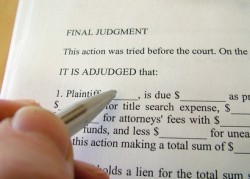Construction Law: Qualifier/Qualifying Agreement – Qualifying Additional Business Entities – Proof of Supervision
(Need a Qualifier Agreement?, Go to our main qualifier agreement page for more infomation, Click Here!) In recent years, the Construction Industry Licensing Board (“CILB”)has expressed concerns with qualifiers that qualify more than one business entity. The CILB requires that a licensee appear before the board at a monthly meeting in order for the board … Read more




